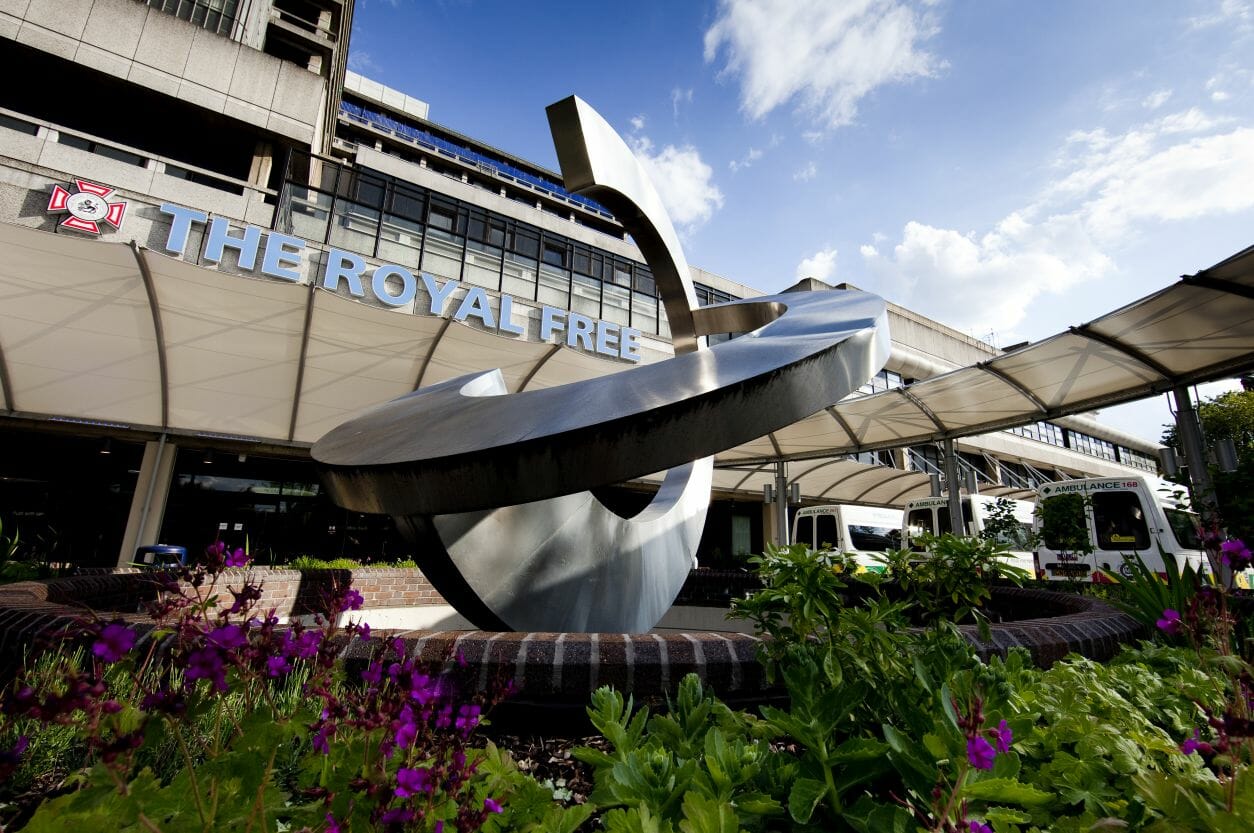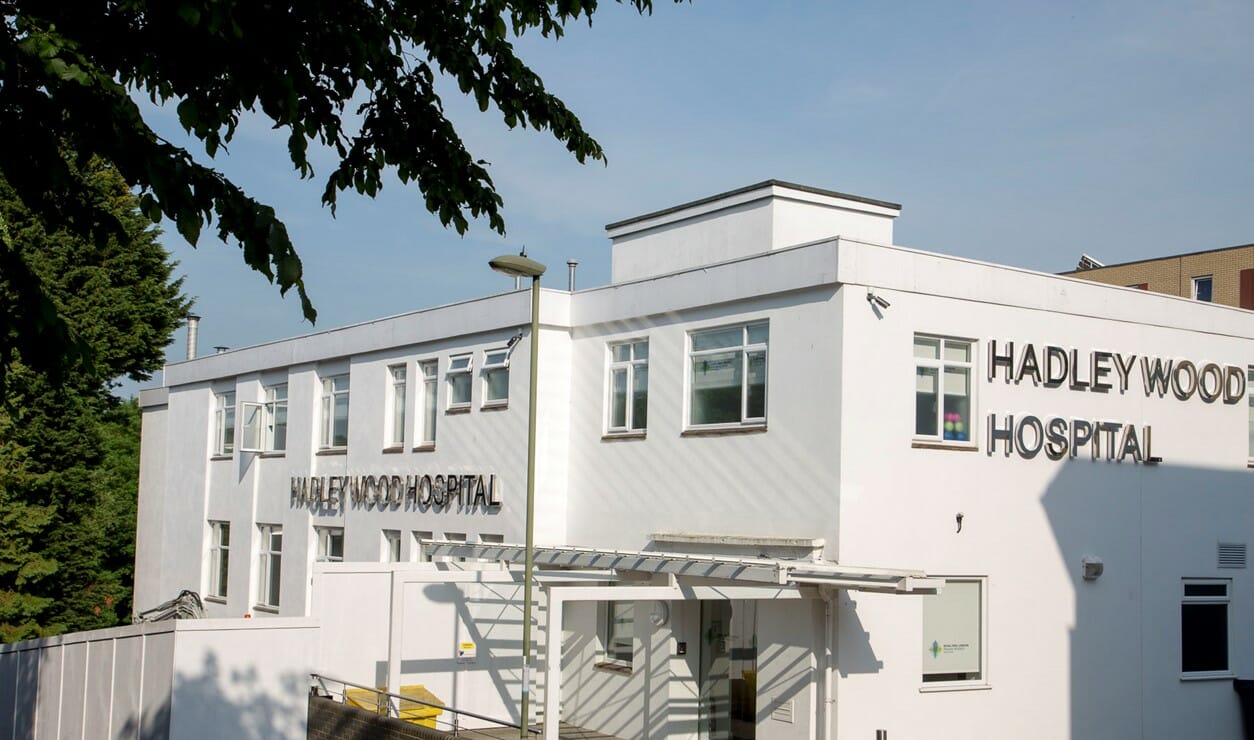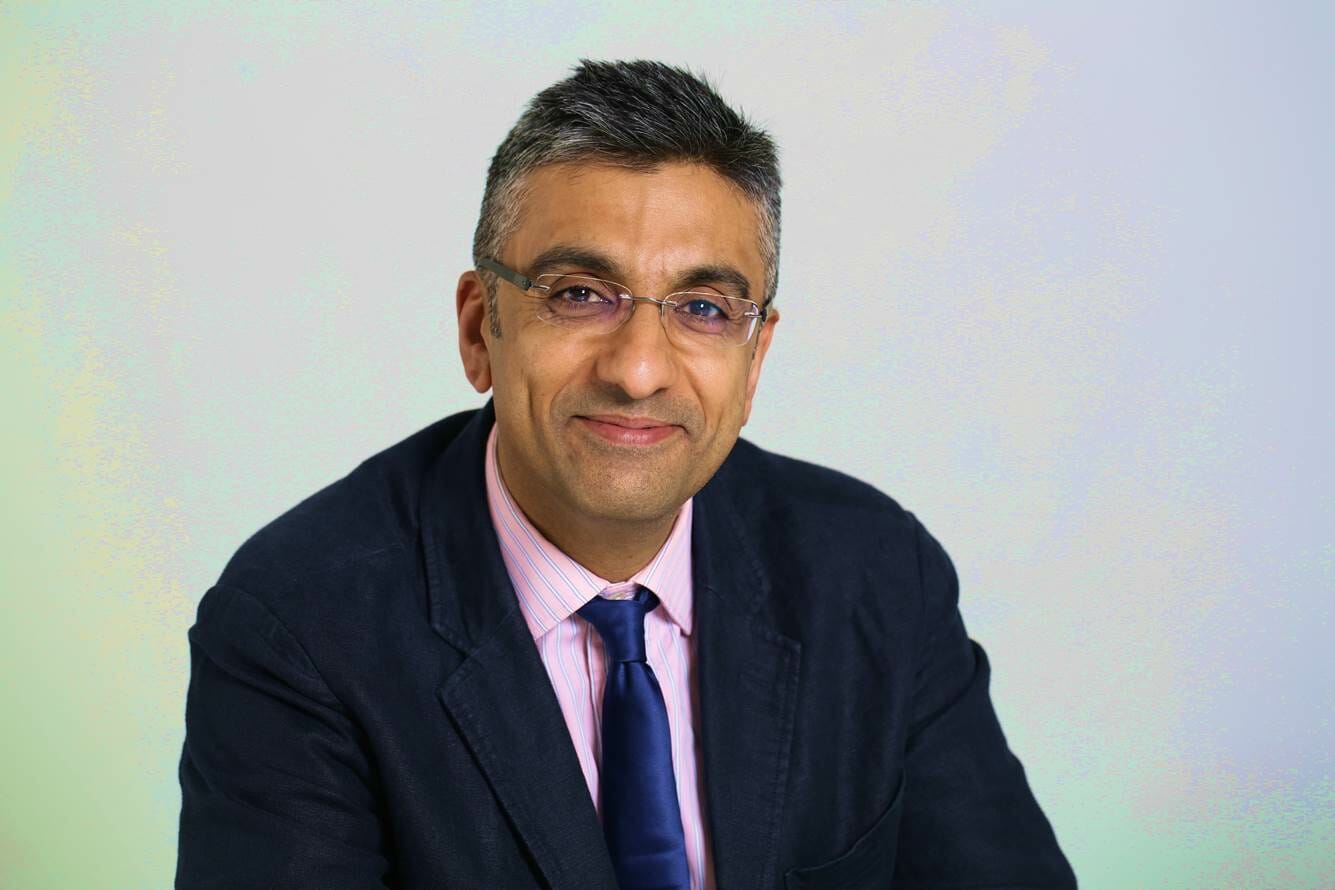Foot and ankle injuries
Our private orthopaedic surgery service for foot and ankle injuries is provided at the Royal Free Hospital in Hampstead and the Hadley Wood Hospital in High Barnet.
We use the latest and most minimally invasive arthroscopic techniques – better known as keyhole surgery – to treat foot and ankle injuries, other types of orthopaedic trauma and chronic musculoskeletal disorders.
What is orthopaedic medicine?
Orthopaedic medicine focuses on treating injuries and disorders affecting the musculoskeletal system, which comprises of the muscles, bones, joints, ligaments and tendons that give your body structure and movement.
There are a variety of different types of musculoskeletal injuries, from foot and ankle injuries like sprains, strains and ligament tears to fractures and breaks.
In addition to acute injuries – which are sudden, unexpected injuries which can usually be resolved relatively quickly with treatment – we also see patients with chronic (long-term) conditions such as osteoarthritis and complex deformities. In some cases, wear and tear from overuse injuries can lead to acute injuries, and vice versa.
Our trauma and orthopaedic surgeons use both nonsurgical and surgical techniques to diagnose, treat and manage musculoskeletal diseases, sports injuries, trauma and more, to help patients live comfortable, active and fulfilling lives.
Symptoms of orthopaedic problems affecting the ankle and foot
The most obvious symptom of an orthopaedic injury or condition is pain. This can be acute pain that gets worse when performing certain movements or when weight bearing, or a dull, persistent ache that never seems to fully go away.
Since everyone’s experience of pain is different, any significant discomfort affecting the foot, ankle or knee that doesn’t improve within a few days could be a sign of an orthopaedic issue.
Other common symptoms of musculoskeletal injury or orthopaedic issues include:
- Inability to bear weight on your foot, ankle or leg
- Walking with a limp
- A physical deformity/abnormality
- Bruising
- Swelling
If you have an injury that is the result of overuse or accelerated wear and tear, this is sometimes known as a repetitive strain injury. Your symptoms may be worse when you perform specific actions or movements.
What causes orthopaedic problems and sports injuries?
Whenever you participate in a sporting activity, you are almost certainly pushing your body beyond its usual day-to-day limits.
Unsurprisingly, this naturally increases your risk of experiencing some types of injuries, particularly if you fail to warm up properly before exercising, or don’t stretch your muscles after physical activity is finished.
Other factors that can increase your risk of sustaining a sports injury can include:
- Accidents, like falls or being hit with a piece of equipment
- Using inappropriate equipment
- Poor technique
- Overtraining
- Wearing shoes that don’t have enough support
- Running or jumping on hard surfaces
- Having a prior injury
Why choose Royal Free London for trauma and orthopaedic surgery?
Our renowned and highly skilled surgeons have extensive experience and expertise in their fields, both in the UK and internationally, treating both NHS and private patients.
Supported by a dedicated nursing team, and with access to a broad range of other medical professionals, our patients can benefit from a truly multidisciplinary approach to their care if required.
We provide a 24/7, consultant-led service that can be accessed directly or through referral from your healthcare provider. Every patient can be assured of a personal service, including a bespoke treatment plan tailored specifically to your needs, and comprehensive aftercare provided directly by our expert team.
Contact us Monday to Friday, 8am - 6pm:
Booking line: +44 (0) 20 4502 8783
What trauma and orthopaedic services does the Royal Free Hospital provide?
We provide a comprehensive range of orthopaedic and trauma response treatments. Our teams will use the latest and most minimally invasive techniques to help ensure that your recovery is as swift and comfortable as possible.
We are able to treat all aspects of orthopaedic foot and ankle injuries and conditions, as well as those affecting the knee.
Our services include but are not limited to:
- Achilles tendon disorders and injuries
- Ankle replacement surgery for arthritis
- Ankle arthroscopy
- Anterior cruciate ligament (ACL) repair and reconstruction
- Bunions and hallux rigidus
- Cartilage defects and repairs
- Complications caused by diabetes
- Complex deformities
- Flat feet
- Fractures
- Ganglion cyst
- Joint instability
- Morton’s neuroma surgery
- Osteoarthritis affecting the knee, ankle and foot
- Osteotomy (bone realignment)
- Sports injuries including strains, sprains and tears
- Stem cell therapy and other cellular therapies
- Tendinopathy
Our expert team specialises in treating sports injuries and routinely sees both amateur and professional/elite-level athletes. Not only do we seek to treat the injury itself, but our goal is to optimise healing quality so that patients benefit from a more robust repair, and reduced risk of further injury in the future.
Our team is also the first in the UK to successfully treat diabetic ulcers with stem cell therapy.
Treatments for orthopaedic trauma or disorders
Exactly which treatment our team will recommend will depend on the type of injury you’ve sustained.
During your initial consultation, our orthopaedic specialists will conduct a physical examination, take your medical history and order any additional tests that may be required to make an accurate diagnosis. This could include X-rays or other imaging.
Chronic conditions are often treated using a combination of pain relief and physiotherapy.
Where suitable, you may be recommended biological therapies, such as PRP injections. These use biological tissues found in the human body such as blood or bone marrow to treat injuries or chronic conditions. Several studies have shown that musculoskeletal issues like sports injuries respond very positively to biological therapies.
If surgery is required, where possible it will always be performed arthroscopically.
This minimally invasive technique uses a camera on the end of a long, thin tube called an arthroscope. The arthroscope is inserted through a small incision just a few centimetres big in the area where surgery is to be performed and feeds back real-time images to a screen in the operating theatre. Small surgical instruments are inserted into other similar-sized incisions and used to carry out the investigation or repair.
Arthroscopic surgery has several key benefits, including:
- Less swelling and inflammation
- Faster healing
- Less bleeding before and after surgery
- Less post-operative pain
- Lower risk of complications
- Faster return of functionality
- Patients can usually go home on the same day
Risks or side effects of orthopaedic treatment
Every type of medical treatment comes with its own risks and complications, and orthopaedic treatments for sports injuries and conditions like arthritis are no exception.
However, every care is taken to minimise the risk of complications or side effects, with your own medical history being taken into account at the time of recommending a specific course of action.
All surgeries are performed arthroscopically, which helps to reduce risks associated with invasive procedures. Some of the benefits of arthroscopic surgical techniques include smaller wounds, less risk of infection, less blood loss, less post-operative pain and a faster recovery period.
Aftercare
Our dedicated orthopaedic surgery team is committed to providing exceptional aftercare.
Exactly how this looks will depend on the type of surgery you’ve had. Most patients will be treated as an outpatient, meaning that you may be able to go home the same day as your surgery.
You can expect regular follow-up appointments with your consultant where any wounds will be checked and dressed. The progression of your healing will be closely monitored and any concerns will be quickly addressed to ensure that you enjoy optimal recovery with minimal risk of long-term complications.
You should be sure to always follow any post-surgical instructions given to you by your care team, particularly when it comes to taking any pain-relieving medications you may have been prescribed.
Many orthopaedic surgeries require a period of rehabilitation to build strength, flexibility and stability back in their affected joints. This usually involves a combination of physiotherapy, exercises and lifestyle adjustments. Your orthopaedic consultant will be able to explain what to expect and make the necessary referrals.
Meet our consultants
We work with leading experts who are all supported by the expertise of a multidisciplinary team. Our specialist team of doctors and surgeons includes:

Royal Free Hospital
The Private Patients Until at the Royal Free Hospital was established in 1980.
The unit is part of the NHS and is wholly owned by the Royal Free London NHS Foundation Trust. We offer you access to some of London’s most experienced specialists, all of whom work as NHS consultants at our facilities.

Hadley Wood Hospital, High Barnet
Hadley Wood Hospital is a dynamic new private healthcare facility located in High Barnet, North London.
Part of the Royal Free London NHS Foundation Trust, Hadley Wood Hospital offers you access to some of London’s most experience specialists, all of whom work as NHS consultants at the Royal Free, Barnet and Chase Farm Hospitals.
Further information and support
Funding your treatment
Get immediate access to the care you need with self-funding or private health insurance.
Contact us
If you would like to contact another department within our hospitals.
Investing in the NHS
The NHS is an important part of what we do at Royal Free London which is why we reinvest our profits back into it. Our investment provides life-saving equipment and supports medical research to ensure better healthcare for all. Find out how we invest in the NHS.

